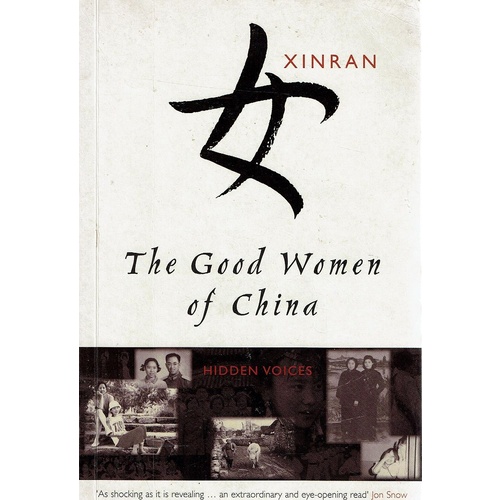

“Strangely poetic as well as disturbing.Readers familiar with Wild Swans will know about the endless political campaigns and their malign effect on domestic life.the author is at her best when talking to women of that era.” – The Economist “An amazing glimpse into culture.Xinran leaves us wanting to know more about ordinary Chinese women–women like herself.” – The Deseret News Collectively, they are a raw and explosive social history.” – Rocky Mountain News Rather than educating readers through facts and statistics, the author takes readers into the world of these Chinese women, printing their testimonies, which are beautiful, simple, honest, but sometimes horrific. These stories have all the force of good fiction.” - The Washington Post “Bursting with details that make each account haunting. “An important document that records with intelligent sympathy lives warped or destroyed by political revolutions.” - Kirkus Reviews “A rare collection of testimonies that show the scale of our humanity, both good and bad, wondrous and horrific.” -Amy Tan

This intimate record reads like an act of defiance, and the unvarnished prose allows each story to stand as testimony.” - The New Yorker "synopsis" may belong to another edition of this title. And then there is Xinran herself: an extraordinary woman who, despite her own unhappy past, has given her life to saving the stories of Chinese women from oblivion. And yet this is also a book about love - about how, despite cruelty, despite politics, the female urge to nurture and cherish remains. The stories presented here tell of almost inconceivable suffering: rape, sexual abuse, the separation of parents from their children, the suppression of human emotion in order to survive the Communist regime - never before have the tortured souls of Chinese women been laid so bare. She realised that she knew far less than she had thought about what it means to be a Chinese woman and embarked on a journey of discovery to collect their stories. Soon she was receiving over two hundred letters a day from women telling her their stories. She felt as if she was opening a tiny window into a huge fortress whose inhabitants had never before communicated with the outside world.

Xinran's programme revealed aspects of women's lives that had never been talked about in public before. It started in 1990, a time when China seemed to be 'opening up', both for the Chinese and for the world. Broadcast between 10 and 12 at night, Words on the Night Breeze soon became famous all over China for its powerful, honest discussions of what it means to be a woman in today's China. For seven years, Xinran Xue hosted a daily radio phone-in programme for Radio Nanjing during which she discussed women's lives, and invited women to call in and talk about themselves.


 0 kommentar(er)
0 kommentar(er)
